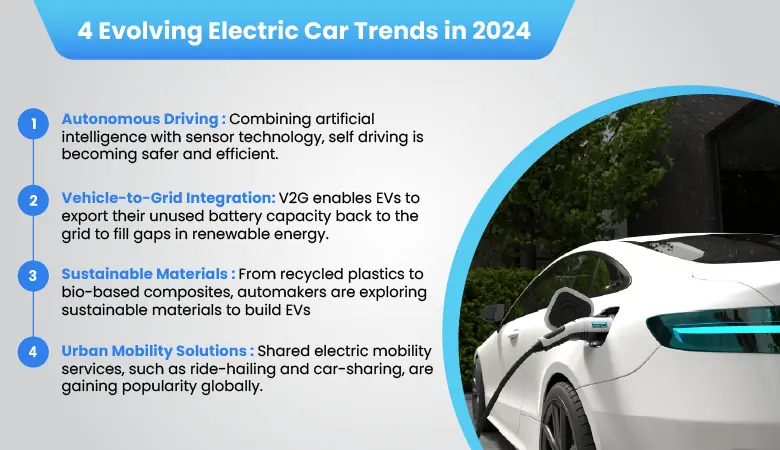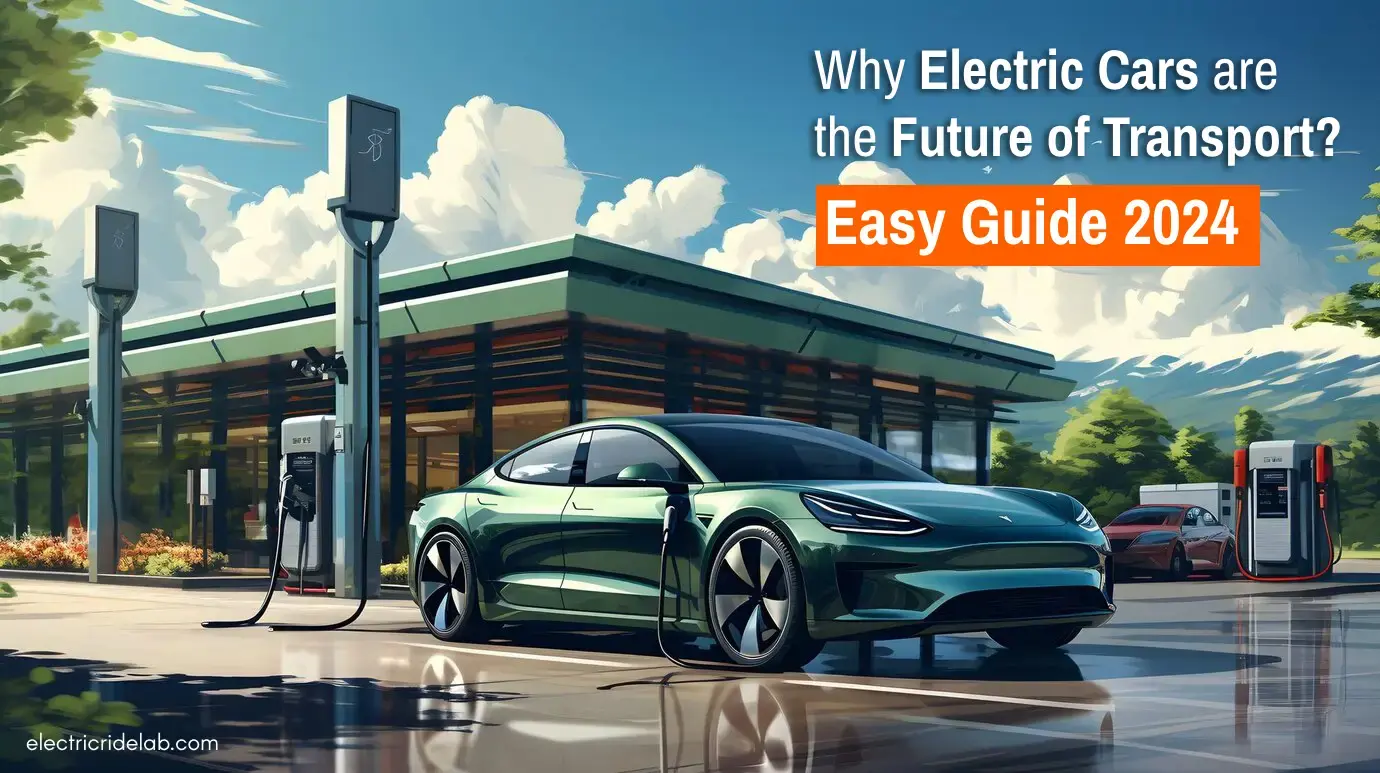In recent years, the automotive industry has witnessed a revolutionary shift toward sustainability and efficiency.
Electric cars, once considered a futuristic concept, are now becoming mainstream as a viable alternative to traditional combustion engine vehicles. With advancements in technology and growing environmental concerns, electric vehicles are poised to redefine the future of transportation.
In this comprehensive guide, we delve into the various aspects of electric cars, exploring their benefits, challenges, and the exciting future they hold.
Evolution of Electric Cars:
Electric cars are not a new invention; In the 19th century Walter Bersey designed electric battery powered taxis in London, and nicknamed them as “hummingbirds” just because of strange humming noise.
However, it is only in the past decade that they have gained significant traction.
The development of lithium-ion batteries, improvements in charging infrastructure, and government incentives have all contributed to their widespread adoption.
Advantages of Electric Cars:
- Environmental Benefits: One of the primary reasons for the rise of electric vehicles is their environmental friendliness. Unlike traditional vehicles that emit harmful pollutants, electric cars produce zero tailpipe emissions, reducing air pollution and combating climate change.
- Cost Savings: While the upfront cost of EVs may be higher than conventional vehicles, they offer substantial long-term savings. With lower fuel and maintenance costs, electric cars prove to be more economical over their lifespan.
- Performance: Electric cars are known for their instant torque and smooth acceleration. With fewer moving parts than internal combustion engines, they provide a quieter and more responsive driving experience.
- Energy Efficiency: Electric cars are more energy-efficient than their gasoline counterparts. They convert a higher percentage of the energy from the grid into motion, reducing energy waste.
Challenges Facing Electric Cars:
- Range Anxiety: Despite advancements in battery technology, range anxiety remains a concern for many potential buyers. While modern electric cars offer respectable ranges, the fear of running out of battery power on long journeys persists.
- Charging Infrastructure: The availability of charging stations is crucial for the widespread adoption of electric vehicles. While progress has been made in expanding charging networks, further investment is needed to ensure convenient access for all drivers.
- Battery Technology: Although lithium-ion batteries have significantly improved, they still face challenges such as limited lifespan and resource scarcity. Research into alternative battery chemistries and recycling methods is ongoing to address these issues.
- Market Acceptance: Despite their numerous benefits, EVs still face resistance from some consumers due to concerns about range, charging infrastructure, and upfront costs. Education and awareness campaigns are essential to dispel myths and promote the advantages of electric vehicles.
The Future Outlook:
The future of transportation is undoubtedly electric. Governments around the world are implementing policies to phase out internal combustion engine vehicles in favour of electric ones. Automakers are investing heavily in electric vehicle development, with many announcing plans to transition to fully electric fleets in the coming years.
Key Trends Shaping the Future of Electric Cars:

- Autonomous Driving: Electric vehicles are at the forefront of autonomous driving technology. With advancements in artificial intelligence and sensor technology, self-driving electric vehicles are becoming a reality, promising safer and more efficient transportation.
- Vehicle-to-Grid Integration: Electric vehicles can serve as energy storage devices, allowing them to interact with the power grid through vehicle-to-grid (V2G) technology.
- This integration enables the seamless exchange of electricity between cars and the grid, supporting renewable energy integration and providing grid stabilisation services.
- Sustainable Materials: As sustainability becomes a top priority for consumers, automakers are exploring innovative materials for electric car production. From recycled plastics to bio-based composites, the use of sustainable materials reduces environmental impact throughout the vehicle’s lifecycle.
- Urban Mobility Solutions: EVs are well-suited for urban environments, where congestion and pollution are significant challenges.
Shared electric mobility services, such as ride-hailing and car-sharing, are gaining popularity in cities worldwide, offering convenient and eco-friendly transportation options.
Conclusion:
The future of transportation is electric, and EVs are at the forefront of this transformation. With their environmental benefits, cost savings, and technological advancements, electric vehicles are poised to revolutionise the way we travel. While challenges remain, continued innovation and investment in infrastructure will drive the widespread adoption of electric cars, paving the way for a more sustainable and efficient transportation system. Embracing electric vehicles is not just about embracing a new mode of transportation but also about embracing a cleaner, greener future for generations to come.
FAQ
-
Are electric cars really better for the environment?
Yes, electric cars produce zero tailpipe emissions, making them much cleaner than traditional gasoline vehicles. By reducing greenhouse gas emissions, electric cars play a crucial role in combating climate change.
-
How long does it take to charge an electric car?
Charging times vary depending on the car and the charging station used. With fast-charging stations, some electric cars can reach an 80% charge in as little as 30 minutes, while full charges may take several hours with standard charging.
-
What is the range of electric cars?
The range of electric cars varies depending on the model and battery capacity. Modern electric cars typically offer ranges between 150 to 300 miles on a single charge, with advancements in battery technology continually extending these ranges.
-
Are electric cars more expensive to maintain?
In general, electric cars have lower maintenance costs compared to traditional vehicles. They have fewer moving parts and do not require oil changes or regular tune-ups. However, battery replacements can be a significant expense, although they are becoming more affordable as technology improves.
-
Can I charge an electric car at home?
Yes, most electric car owners charge their vehicles at home using a standard electrical outlet or a dedicated home charging station. This allows for convenient overnight charging, ensuring the car is ready to go each morning.




